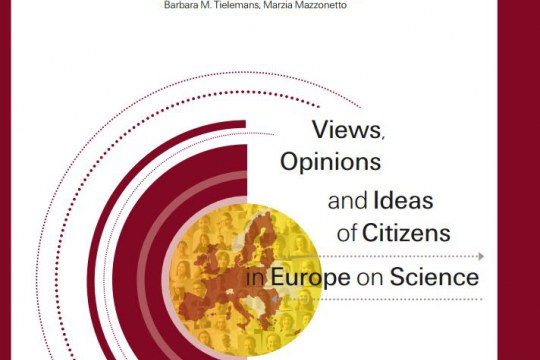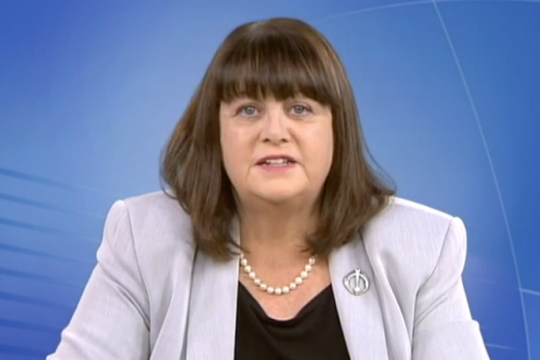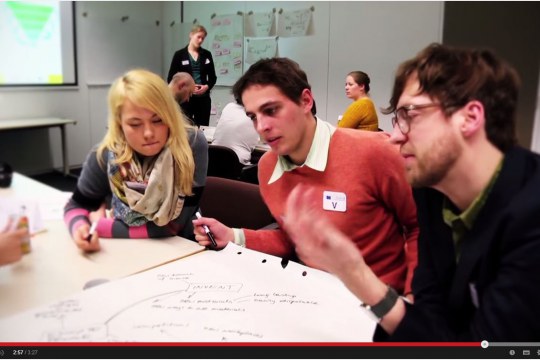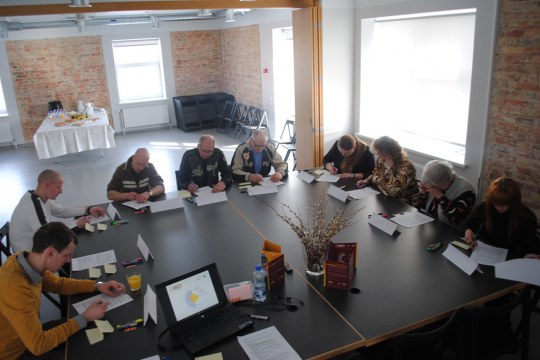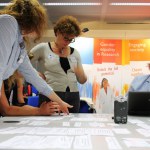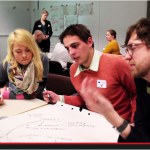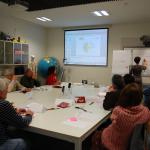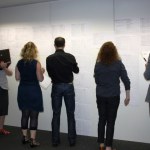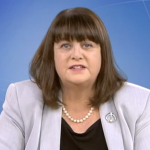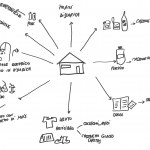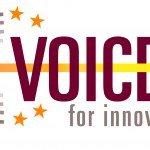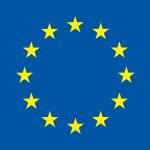VOICES means "Views, Opinions and Ideas of Citizens in Europe on Science". It was a year-long EU funded project with very innovative and challenging objectives. VOICES aimed at running a Europe-wide public consultation initiative, but also at providing valuable know-how on methodological and procedural aspects for the structural employment of citizens participation in defining the European research agenda in the framework of Responsible Research and Innovation. Citizens’ participation in science and technology policy is the subject of a vast field of research and practice in the domains of science communication and science and technology studies.
With this call the European Commission wanted to include the citizens’ preferences, values, needs and expectations in the actual research priorities that are now part of the framework program “Horizon 2020”. Compared to many other consultation initiatives, the VOICES project represented a breakthrough because of its scale (covering all of Europe) but most importantly because of the stated commitment of the European Commission to formally include the results of the citizens’ consultations in the main policy document that will shape the priorities of European research. Moreover, another breakthrough aspect was the use of a methodological approach on such a wide scale which makes use of qualitative methodologies, which allow a deeper understanding and harvesting of citizens views, fostering real governance processes and social innovation. Finally, the knowledge that was gained with this pilot, in terms of methodology, infrastructure and results, was documented and presented in a way that it can be used to organize similar participatory actions in the future across Horizon 2020. VOICES was therefore building capacity both at the European and national levels to organize public consultations of this kind. Thanks to a deep collaboration between the academic field and the practitioners world, VOICES initiated and documented the process of content development and training necessary to implement a distributed and coordinated effort of public consultations.
In concrete, VOICES runned a consultation process to involve one thousand European citizens in discussing the European research priorities for the theme “Urban Waste and Innovation”; the consultations took place in 33 locations across 27 European countries.
28 institutions from the Ecsite network have been actively involved in VOICES as Third Parties linked to the beneficiary and were responsible for organizing the focus groups. Experienced moderators from all Ecsite members participated at the beginning of March 2013 in training modules on the contents of the focus group which was being developed by the VOICES team. 99 focus groups, with 10 participants each, have been conducted, during the month of March 2013, at science centers (and in 4 subcontracted locations) in neutral settings. Following this, the VOICES team (which was composed of experienced Science Communication Project Managers from the Ecsite staff and academic researchers from the Athena Institute - section of Science Communication - of the VU University in Amsterdam) was responsible for the organization of the process, as well as for consultations with the VOICES Advisory Board, organization of the training of the moderators, analysis of the consultations and dissemination of the outcomes in public events.
The results of the analysis were integrated with the stakeholders’ views and presented to the European Commission for input into the Consolidation group set up with call SiS.2013.1.2.1-2, within the Societal Challenge “Climate action, resource efficiency, raw materials” of Horizon 2020 that aims to introduce a citizen dimension in the preparation of the Horizon 2020 Work Programmes for 2014. The VOICES communication and documentation aspects were as important as the formal results of the consultations. All the major components of the process – methodology, content development, training, focus groups, analysis of results, public events – were documented on two levels. At one level is the production of various communication materials (written materials, fact sheets, digital brochures, animations and short videos/tutorials) to provide easy access, media ready content that can be used to communicate about the project with different audiences. The second level is based on an open source platform (Visual Lab), which represents the open data approach to this project. All the contents and structure of the focus groups, as well as rationales on the approach to urban waste management utilized and any other specificity of the methodology, instruction for providing the training to moderators, and the transcripts and results of the analysis of the consultations, was documented and made freely available on-line on the VOICES open source platform (Visual Lab). The communication materials and on-line platform were developed by Formicablu srl, a member of Ecsite, in order to maximize the integration of the communication products and processes with the other members of the Ecsite network.
VOICES was a EU funded project answering to the SiS.2013.1.2.1-1 (Grants to Name Beneficiary) call: Citizen's active participation in EU Research and Innovation policymaking (Coordination and Support Actions). This action was a pilot focused on "Waste as a Resource" within the Societal Challenge “Climate action, resource efficiency, raw materials” of Horizon 2020 that aimed to introduce a citizen dimension in the preparation of the Horizon 2020 Work Programmes for 2014. Available here.
Tangible benefits for science engagement professionals
You want to convince your stakeholders to run a public consultation, need to learn how to run a focus group or are simply curious to know what thoughts citizens expressed on waste management in your country? As this was a pilot project, everything has been carefully documented. Plenty of resources available online, in several languages.
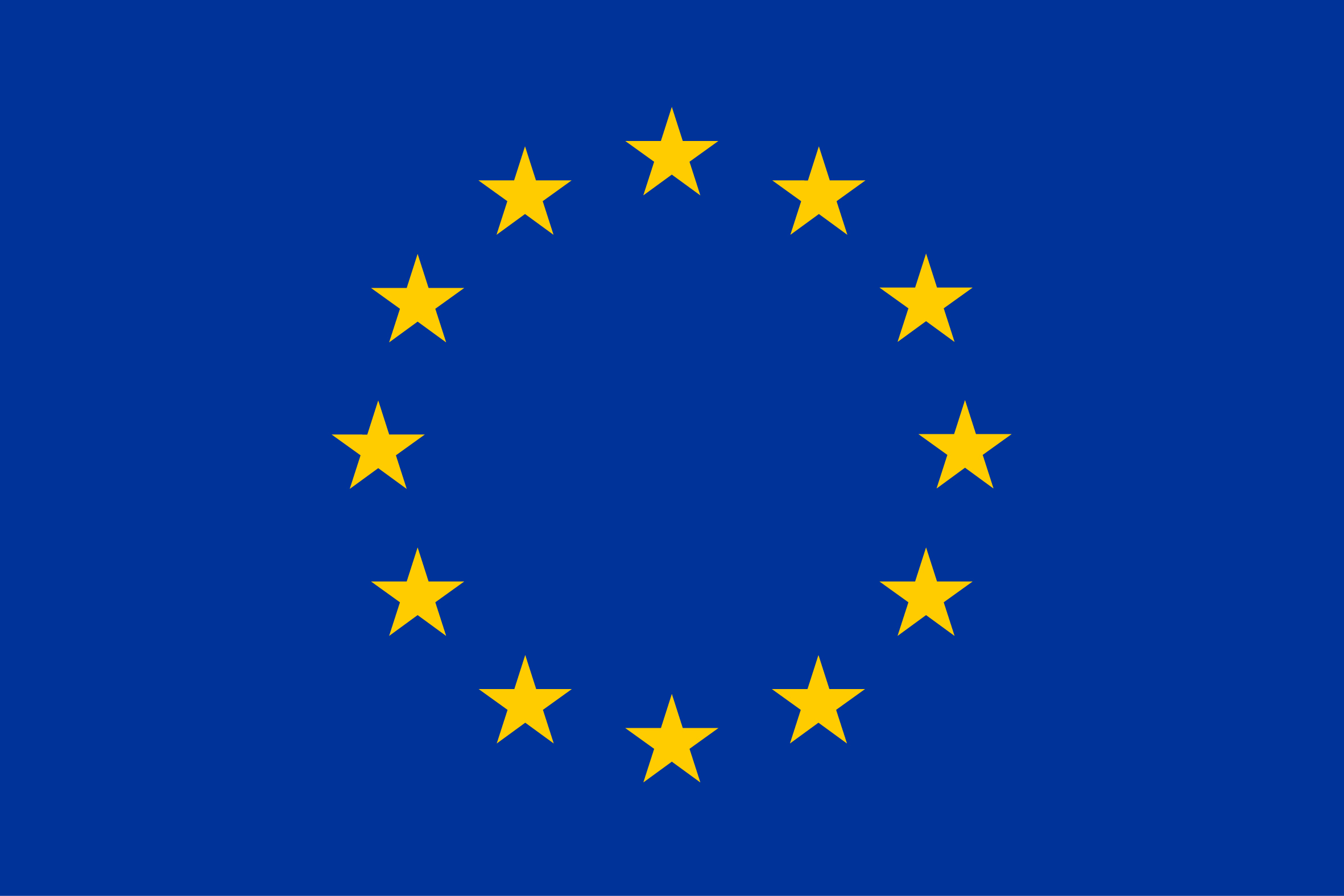 Supported by the European Union's Framework Programme for Research and Development (FP7), grant agreement NO. 612210
Supported by the European Union's Framework Programme for Research and Development (FP7), grant agreement NO. 612210
Ecsite members involved
List of project partners
Ecsite is the Coordinator of the VOICES project. 28 Ecsite Members are involved in the project as Third Parties.
Collaborators
Michael Creek, consultant on European projects
Advisory Group
The VOICES Focus Group approach was validated by the VOICES Advisory Group, composed of 10 experts in public participation, RRI, urban waste/environment issues, social innovation, governance, qualitative methodologies in social research and the science museum field.
The Advisory group convened to fine-tune the methodology, agree on its definitive format and confirm the socio-demographic profiles for the citizens panels of the focus groups used by the recruitment agencies.
Experts of the Advisory Group
Anabela Carvalho, Department Of Communication Sciences, University of Minho, Portugal
Erik Kraak, Managing Director, PQR - Partners in Quality Research, The Netherlands
Fiona D. Wollensack, Senior Consultant, IFOK GmbH Brussels, Belgium
Florian Part, University of Natural Resources and Life Sciences, Institute of Waste Management (BOKU), Vienna
Janjoost Jullens, Advisor, Instituut Maatschappelijke Innovatie (Institute for Social Innovation, IMI), The Netherlands
Julia Nowicka, Head of the Evaluation and Analysis Department, Copernicus Science Center, Copernicus Science Centre, Warsaw, Poland
Maarten Goorhuis, Senior Policy Expert of The Royal Dutch NVRD (waste management association), The Netherlands
Roberto Caggiano, Consultant in waste and wastewater management, Rome, Italy
Steve Robinson, Managing Director, Strategic Consulting LTD, UK
Vanya Veras, Secretary General, Municipal Waste Europe, Brussels, Belgium
Matthias Rapf, Universität Stuttgart- Institute of Sanitary Engineering, Water Quality and Waste Management Group Resources Management and Industrial Wastes (RIK), Germany
Joerg Hanewinkel, Managing Director, Neovis (independent consulting and engineering service provider), Germany
Mario Grosso, PhD, Politecnico di Milano, Italy
Consolidation group
The main task of the Consolidation Group is to assess the citizen outcomes of the focus groups held all across Europe on the topic 'Urban Waste'. The aim is to provide the European Commission with advice and expertise on different fields in order to transform citizens' ideas (previously rated by the VOICES Advisory Board) into priorities for the next work programme on 'Urban Waste'.
The two-days Consolidation meeting took place at the European Commission in Brussels on 12-13 June 2013. The composition of the Group was diverse. Participants were selected from research and academia, business/industry/SMEs, public authorities, civil society and non-government organisations, and other key stakeholders.
Experts of the Consolidation Group
Filippo Addarii, Euclid Network
Yorg Aerts, OVAM Public Waste Agency for Flanders
Filipe Alves, Cooperativa para o Desenvolvimento Sustentàvel
Hali Healy, King's College London
Corina Hebestreit, Euromines
Floriana La Marca, Sapienza University of Rome
Leida Rijnhout, ANPED
Aurela Shtiza, IMA-Europe - Industrial Minerals Association
Joan Marc Simon, No Burn (GAIA and ZERO WASTE)
Evaluators
An independent evaluation will assess and corroborate the quality of the project and the participatory processes providing suggestions for improvements in the future.
Richard Watermeyer, holds a Ph.D in sociology from Cardiff University's internationally esteemed, School of Social Sciences, and has research interests located at the interface of science and technology studies and the sociology of education. In both areas he is widely published but has special expertise in investigating innovative approaches to 'upstream' engagement and dialogue and interactive and experiential pedagogy. He has written about the expert/public interface in a number of formal and informal educational contexts including science museums/centres; science communication companies and the like.
Through the academic consultancy PIER logistics Ltd, Dr Watermeyer has led a number of UK Government and Government agency evaluations, most frequently in conjunction with Sciencewise.
Gene Rowe is a cognitive/social psychologist whose PhD (from Bristol Business School) concerned group forecasting processes. His subsequent work has focused on human judgment and decision making, especially in the 'food' context, and in particular on food risk perception/ management/ communication, as well as on public engagement processes (in science and technology decision making) and the evaluation of these. He has been successful at attaining and managing a variety of national and international projects.
Gene Rowe founded the GRE (Gene Rowe Evaluations) in 2010. The company focuses on conducting primary academic research, desk analysis, and evaluations of public and stakeholder engagement processes.
Resources
VOICES conducted 100 focus groups in science centres and museums across 27 EU member states, engaging European citizens on the topic of 'urban waste as a resource'. Download the VOICES Final Report, Country Reports and Evaluation Reports.
Máire Geoghegan Quinn, EU Research, Innovation and Science Commissioner recorded a video message which was broadcast at every VOICES Public Event.
EU-finded projects like VOICES are a big part of science centres' evolution towards forums where visitors can learn, discuss and even deliberate about matters related to science, technology and society.
A feature article by Andrea Bandelli published in Spokes#2, Winter 2013
The VOICES consultation process gathered opinions and ideas about urban waste from citizens across the EU. It used science centres and museums as powerful spaces for public engagement. The results were fed back to policymakers in order to influence the direction of EU research policy.
How can I use VOICES? The results of the VOICES consultation directly affected the European Commission’s Horizon 2020 calls for research funding. As such, VOICES is a model for incorporating citizens’ voices into RRI. But the project outcomes can also be used by other stakeholders on a local and national, as well as European level. For practical information on how to implement a consultation like VOICES, download the following documents.


